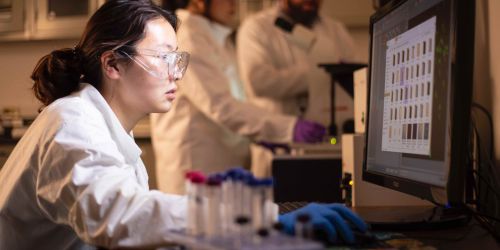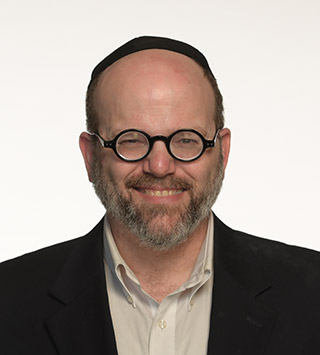
Active Computational Thinking (ACT) Center
Just as computing devices are now ubiquitous in our hands, homes, and workplaces, computational thinking and methods are needed to be spread throughout disciplines in order to spur singular scientific discoveries, powerful innovations, and new ways to see the world and ourselves.
The Active Computational Thinking (ACT) Center serves as a host to achieve this transformation at Illinois Institute of Technology by bringing together faculty, students, and practitioners from computing and all other disciplines to develop deep interdisciplinary collaborations.
ABOUT
The ACT Center’s mission is to establish computational thinking as an integrated foundation for scholarship and innovation throughout Illinois Tech and beyond by serving as a convener and a catalyst for developing deep interdisciplinary collaborations between computer science—and computing more broadly—and the other intellectual disciplines. The ACT Center’s activities will be broad, including efforts in research, education, industrial innovation, and social impact.
The ACT Center seeks to accomplish its mission by:
- Convening meetings and workshops to bring together researchers and scholars around potentially transformative topics of interest
- Developing funds through philanthropy and external grants, which can be used as seed grants and other incentives for deep collaborative research
- Seeking out opportunities for external funding for far-reaching interdisciplinary work, and helping develop relationships for large-team science and to facilitate funding
- Developing partnerships with external organizations, such as national labs, nonprofits, and corporations that can contribute to interdisciplinary efforts between computing and other fields
ACTIVITIES
The ACT Center works across Illinois Tech to pull together faculty from all departments to develop interdisciplinary collaborations centered around artificial intelligence and other computational areas. Primary activities have included the artificial intelligence working groups sponsored by the ACT Center, which have remained active since their formation in early 2019. The B.S. and M.A.S. in AI degrees, whose development was supported by these groups, now have more than 60 students enrolled. The AI Ethics group also meets monthly at Illinois Tech’s Center for the Study of Ethics in the Professions, bringing together faculty members and grad students to discuss issues pertinent to AI and ethics. The connections developed by this initiative were also key to the preparation of multiple interdisciplinary, multi-institutional proposals from the university targeting the National Science Foundation’s call for large-scale AI institutes.
Computational Interdisciplinary Seed Funding (CISF)
The ACT Center Computational Interdisciplinary Seed Funding (CISF) program seeks proposals for innovative seed projects that initiate innovative research programs integrating computational methods and thinking with other disciplines. The goal of funded seed projects is to incubate interdisciplinary teams and ideas to develop such interdisciplinary projects, with a key deliverable being a submitted proposal for external funding to continue the project.
Interim Director
Shlomo Argamon
Professor of Computer Science Shlomo Engelson Argamon serves as Illinois Tech’s Department of Computer Science chair, and has been a faculty member at the university since 2002.
Argamon’s focuses his research on computational methods for style-based analysis of natural language using machine learning and shallow lexical semantic representations. Other topics on interest include exploring applications in intelligence analysis, forensic linguistics, biomedical informatics, and humanities scholarship. His current work centers on connecting ideology and personality to language use, and on extracting and analyzing the meaning of metaphors. He is particularly interested in elucidating the relationships among linguistic structures, individual reasoning, and social context.
Argamon says he believes the future of computer science will be defined by how computer scientists integrate technical content with their larger human and social context. New areas within computer science, such as edge computing and the Internet of Things, not only pose difficult technical challenges, but also challenge us to find new understanding of how embedding computing in society affects (and is affected by) human dynamics. Such transdisciplinary collaboration will reorient computer science thinking more around psychological and social factors.


